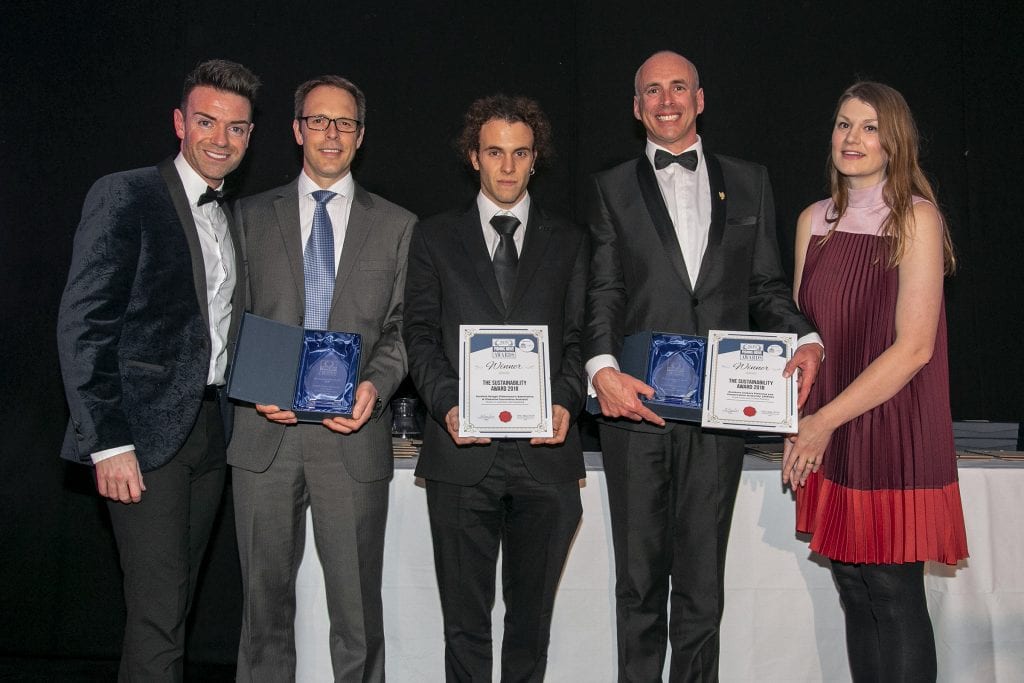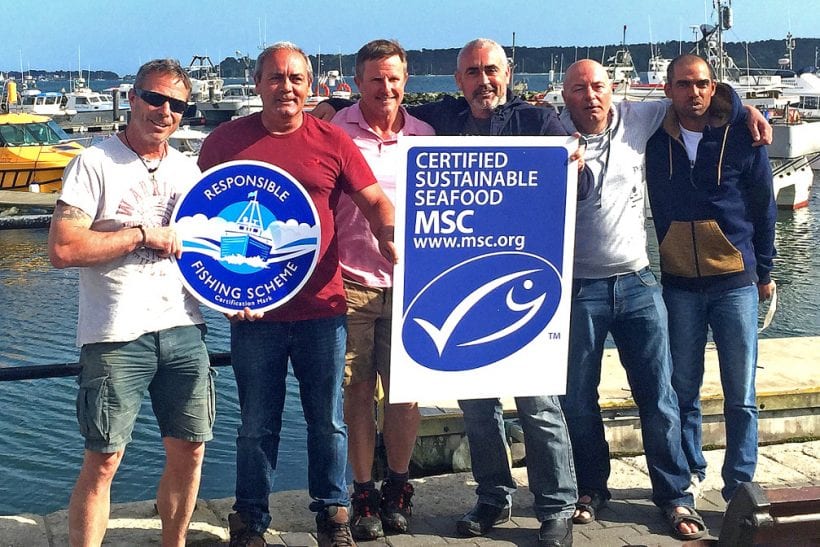

The Fishmongers’ Company is committed to supporting a fishing industry that is not only profitable but is also sustainable, ensuring a healthy future for our marine environment and the communities that depend on it. In doing so, the Company supports and rewards initiatives that promote sustainability within the fishing industry.
One way in which we do this is through our sponsorship of the annual Fishing News Sustainability Award that recognises and rewards outstanding innovation and achievement related to improving sustainability and environmental responsibility within the UK fishing industry. The winners are presented with their award at the annual Fishing News Awards dinner in Aberdeen.

The award is judged by the Fishmongers’ Company as part of a panel of experts. This year, with competition especially close, the award was shared between two initiatives: the Southern Inshore Fisheries and Conservation Authority (SIFCA) – Poole clam and cockle fishery and the Scottish Pelagic Fishermen’s Association & Fisheries Innovation Scotland – study on scientific self-sampling.

The Poole clam and cockle fishery achieved a world first in 2018, gaining Marine Conservation Society and Seafish Responsible Fishing Scheme certification for a single fishery. Working in partnership, fishermen and scientists have transformed an unregulated and unsustainable fishery into a blueprint for UK inshore fishery management in just five years through dialogue, trust and good science.

The Scottish Pelagic Fishermen’s Association & Fisheries Innovation Scotland – study on scientific self-sampling provides another great example of collaboration between scientists and the fishing industry. Fishermen often question scientific surveys and sampling techniques whilst scientists are often sceptical of the reliability of catch data. This feasibility study utilised self-sampling methods that enabled fishermen to directly contribute to stock assessments. This provides opportunities for the Scottish pelagic fleet to provide data that will feed into the management of their fisheries and explores how self-sampling schemes can be applied in fisheries which are currently data-poor.